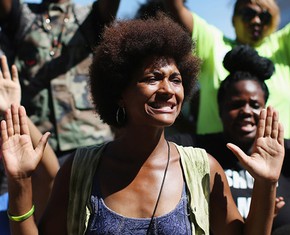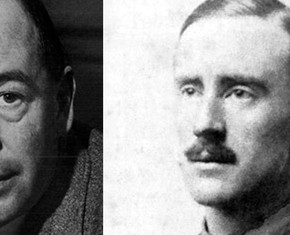The views expressed in our content reflect individual perspectives and do not represent the authoritative views of the Baha'i Faith.
Sometimes it feels like comparing yourself to others is inevitable. In a sense, it’s natural, right? We are social creatures, so we look to one another to try and figure life out.
But we often overdo it. We cross the line between seeking guidance from our elders and blind imitation. Searching for inspiration morphs into worshipping others. Sometimes, as we look over to see how others pursue a goal, we get sucked into unbridled competition.
Baha’is believe that human nature is multi-faceted. On the one hand, we have a higher self inspired by divinity, and on the other, we share primal qualities with animals in the wild:
As we have before indicated, this human reality stands between the higher and the lower in man, between the world of the animal and the world of divinity. When the animal proclivity in man becomes predominant, he sinks even lower than the brute. When the heavenly powers are triumphant in his nature, he becomes the noblest and most superior being in the world of creation. All the imperfections found in the animal are found in man. In him there is antagonism, hatred and selfish struggle for existence; in his nature lurk jealousy, revenge, ferocity, cunning, hypocrisy, greed, injustice and tyranny.
…From this standpoint of view, his nature is threefold, animal, human and divine. The animal nature is darkness; the heavenly is light in light. –Abdu’l-Baha, Foundations of World Unity, p. 110
Some believe that many of these animal qualities lead to human motivation. Entire economies rely on the existence of our competitive side. Some social theorists try to explain altruism as self-serving, rejecting the notion that human beings might have a higher nature that allows us to supersede our animalistic tendencies.
Certainly, we are deeply influenced by our lower nature, and it likely does motivate much of what we deem to be good. There are many examples in human history of when a group of people channeled aggression to persevere for justice. Desperation has pushed us to seek more effective ways of establishing peace. Protective instincts can encourage loyalty. And competition can provide us structure, or even guidance, as we strive for excellence in any given thing. But these same qualities can also turn things sour. For example, competition often fuels jealousy or anger, and the Baha’i writings warn against their effects:
Jealousy consumeth the body and anger doth burn the liver: avoid these two as you would a lion. –Baha’u’llah, Compilation of Compilations, p. 460
Does this mean that it is best to just turn away? To focus on our own path and ignore the actions of others? The Baha’i writings suggest otherwise:
Never become angry with one another. Let your eyes be directed toward the kingdom of truth and not toward the world of creation. Love the creatures for the sake of God and not for themselves. You will never become angry or impatient if you love them for the sake of God. Humanity is not perfect. There are imperfections in every human being, and you will always become unhappy if you look toward the people themselves. But if you look toward God, you will love them and be kind to them, for the world of God is the world of perfection and complete mercy. – Abdu’l-Baha, The Promulgation of Universal Peace, p. 92.
It is my hope that you may consider this matter, that you may search out your own imperfections and not think of the imperfections of anybody else. Strive with all your power to be free from imperfections. Heedless souls are always seeking faults in others. What can the hypocrite know of others’ faults when he is blind to his own? … As long as a man does not find his own faults, he can never become perfect. Nothing is more fruitful for man than the knowledge of his own shortcomings. – Ibid., p. 244.
If our focus is on finding ways to see God reflected in one another, then we will walk away inspired. We can avoid jealousy and anger, suppress impulses to overpower or outshine one another, and help each other flourish.
In order to focus on the good in others, we should turn our tendency to correct flaws inwards. All of our pent-up energy can be directed towards our own selves—that way, not only do we become un-preoccupied with competing against others, but we also improve our own hearts and souls in the process.
















Comments
Sign in or create an account
Continue with Googleor